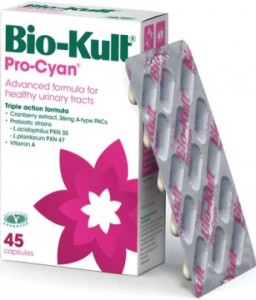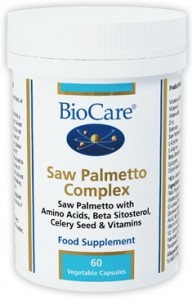Few things in life are as natural and normal as spending a penny. So, if you experience issues when urinating, it often causes concern, even anxiety. Should you check with a doctor if you have trouble when trying to go? Probably, yes. Especially if you feel a great urge to go but then can’t or experience a burning sensation when you do. Or if the urine itself appears cloudy, smells odd or contains blood. Or if you seem to have back pain or pressure in the lower abdomen. Because, should you have a combination of these symptoms, then it’s likely you have a urinary tract infection. These infections (often abbreviated to UTI or UTIs in the plural) are bacterial-based and, if left untreated, can be painful, disruptive and dangerous. In addition to the above symptoms, they can also bring on nausea and a fever and chills – the latter suggesting that the infection is spreading beyond the urinary tract itself.
Causes
It’s certainly true that UTIs tend to afflict women more than they do men, but why is this? Well, while in part it may be because a woman’s urethra is shorter than a man’s and so nearer to their anus, the idea that someone will suffer from a UTI only because of poor hygiene in the anal area (something easy to remedy, obviously) is unfortunately not true. Other potential causes include pre-existing, digestive conditions such as diabetes and kidney stones, use of spermicide-coated contraceptives or possibly urinary catheters, a weakened immune system (thanks to, say, chemotherapy or HIV) and – in the case of men – an enlarged prostate gland. It’s not all bad news, though. The standard treatment for UTIs tends to be antibiotics. And yet it’s worth noting recent research suggests, while they’re often effective for many sufferers of UTIs, antibiotics may not be the silver bullet many assume them to be1.
The limitations of antibiotics
One of the big problems with taking antibiotics to treat UTIs is that they kill both the ‘bad’ bacteria (which create and spread the infection) and the ‘good’ bacteria that’s also naturally found in the urinary tract. Good bacteria plays an important role in ensuring the digestive system functions correctly; indeed, should its levels in your body drop, you could become susceptible to developing inflammatory and autoimmune conditions. However, further research has indicated several different natural remedies may help in not only supporting a healthy urinary tract, but hopefully preventing UTIs3.
Natural remedies
- Cranberry juice – thanks to comprising A-type proanthocyanidins, cranberries may help prevent bad bacteria from making itself at home in the bladder; additionally, they may help stop kidney stones from forming4
- Juniper berry oil – may work towards ensuring there’s probiotic (good/ bad bacteria) balance in the digestive tract5 and aid in flushing out the kidneys by encouraging natural urine flow
- Uva ursi – often referred to as bearberry, this plant extract has long been seen as the go-to natural treatment for UTIs; you’re advised to take it as soon as you believe (or know) you’ve contracted an infection, ideally 2-4g daily for up to five days6
- Organic food – a natural, organic diet featuring a host of vitamins, minerals and antioxidants will support the tract’s good bacteria (as will remaining hydrated by consuming fluids, especially water), unlike a diet of processed food and refined sugar that will just aid bad bacteria growth7.
Supplements
Another way to keep the urinary tract healthy and help maintain the balance between good and bad bacteria in the digestive system is by taking supplements. The following are all designed specifically for this purpose and so could definitely be said to be supplements for urinary tract infections (as you’ll notice, in many of them the headline ingredient is cranberry). Needless to say, as they’re all available through The Finchley Clinic, we strongly recommend every one of them: 
Bio-Kult Pro-Cyan (45 capsules) – a supplement that provides a triple action (36mg PACs of cranberry extract, Vitamin A and the probiotic strains Lactobacillus acidophilus and Lactobacillus plantarum) to help balance gut bacteria levels and keep the urinary tract healthy
Cranberry Intensive (6 sachets) – contains a unique blend of cranberry, potassium salts, Lactobacillus acidophilus, Vitamin C and hibiscus extract that work together to fight bad bacteria in the tract; can be mixed with water and so consumed as a pleasant drink
Cranberry Plus (30 capsules) – in addition to its high level of fresh active cranberry components, this supplement contains Lactobacillus acidophilus and Vitamin C, all of which combine to help combat UTIs, cystitis and vaginal thrush
 Saw Palmetto Complex (formerly Prostate Complex) (60 capsules) – encourages natural function of the urinary tract through its assorted ingredients: saw palmetto, lycopene, zinc, selenium, celery seed, Vitamin A, Vitamin B6, beta sitosterol and the amino acids l-glycine and l-alanine; note that this product is especially beneficial for men as it also contributes to healthy prostate gland function.
Saw Palmetto Complex (formerly Prostate Complex) (60 capsules) – encourages natural function of the urinary tract through its assorted ingredients: saw palmetto, lycopene, zinc, selenium, celery seed, Vitamin A, Vitamin B6, beta sitosterol and the amino acids l-glycine and l-alanine; note that this product is especially beneficial for men as it also contributes to healthy prostate gland function.
References:
- Storm D. W., Patel A. S., Koff S. A. and Justice S. S. ‘Novel management of urinary tract infections’. Curr Opin Urol. Jul 2011; 21(4):328-33. doi: 10.1097/MOU.0b013e328346d4ee.
- Mannhardt W. ‘What is the cause of recurrent urinary tract infection?’. Monatsschr Kinderheilkd. Dec 1992; 140(12): 842-6.
- Reid G. ‘Potential preventive strategies and therapies in urinary tract infection’. World J Urol. Dec 1999; 17(6): 359-63.
- McHarg T., Rodgers A. and Charlton K. ‘Influence of cranberry juice on the urinary risk factors for calcium oxalate kidney stone formation’. BJU Int. Nov 2000; 92(7): 765-8.
- Filipowicz N., Kaminski M., Kurlenda J., Asztemborska M. and Ochocka J. R. ‘Antibacterial and antifungal activity of juniper berry oil and its selected components’. Phytother Res. Mar 2003; 17(3): 227-31.
- University of Maryland Medical Center. ‘Uva ursi’. http://umm.edu/health/medical/altmed/herb/uva-ursi.
- Kontiokari T., Laitinen J., Järvi L., Pokka T., Sundqvist K. and Uhari M. ‘Dietary factors protecting women from urinary tract infection’. Am J Clin Nutr. Mar 2003; 77(3): 600-4.
